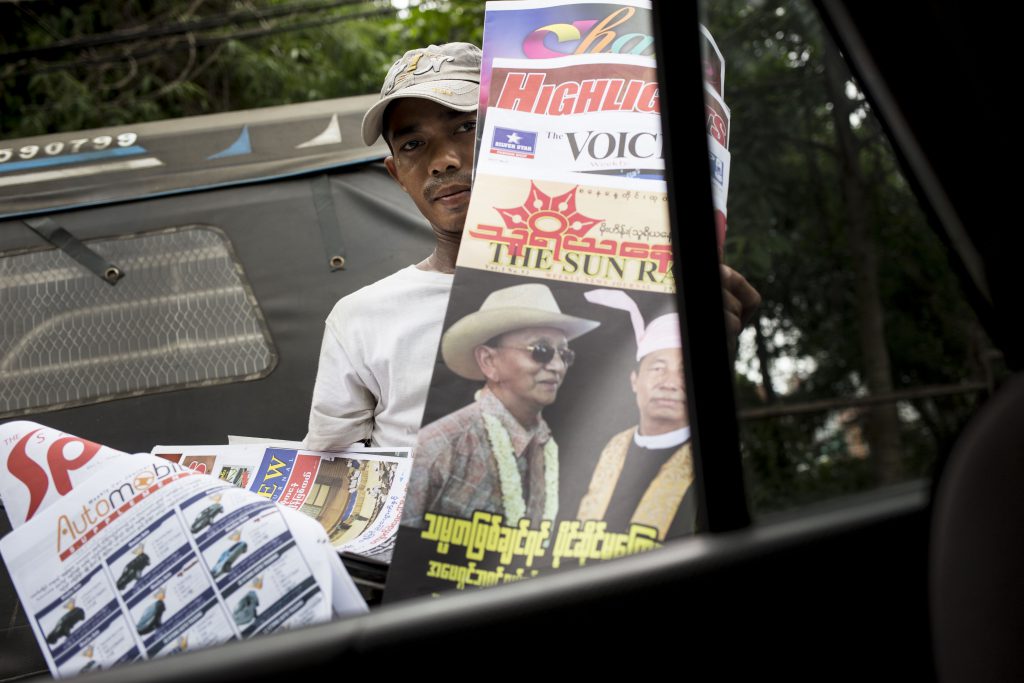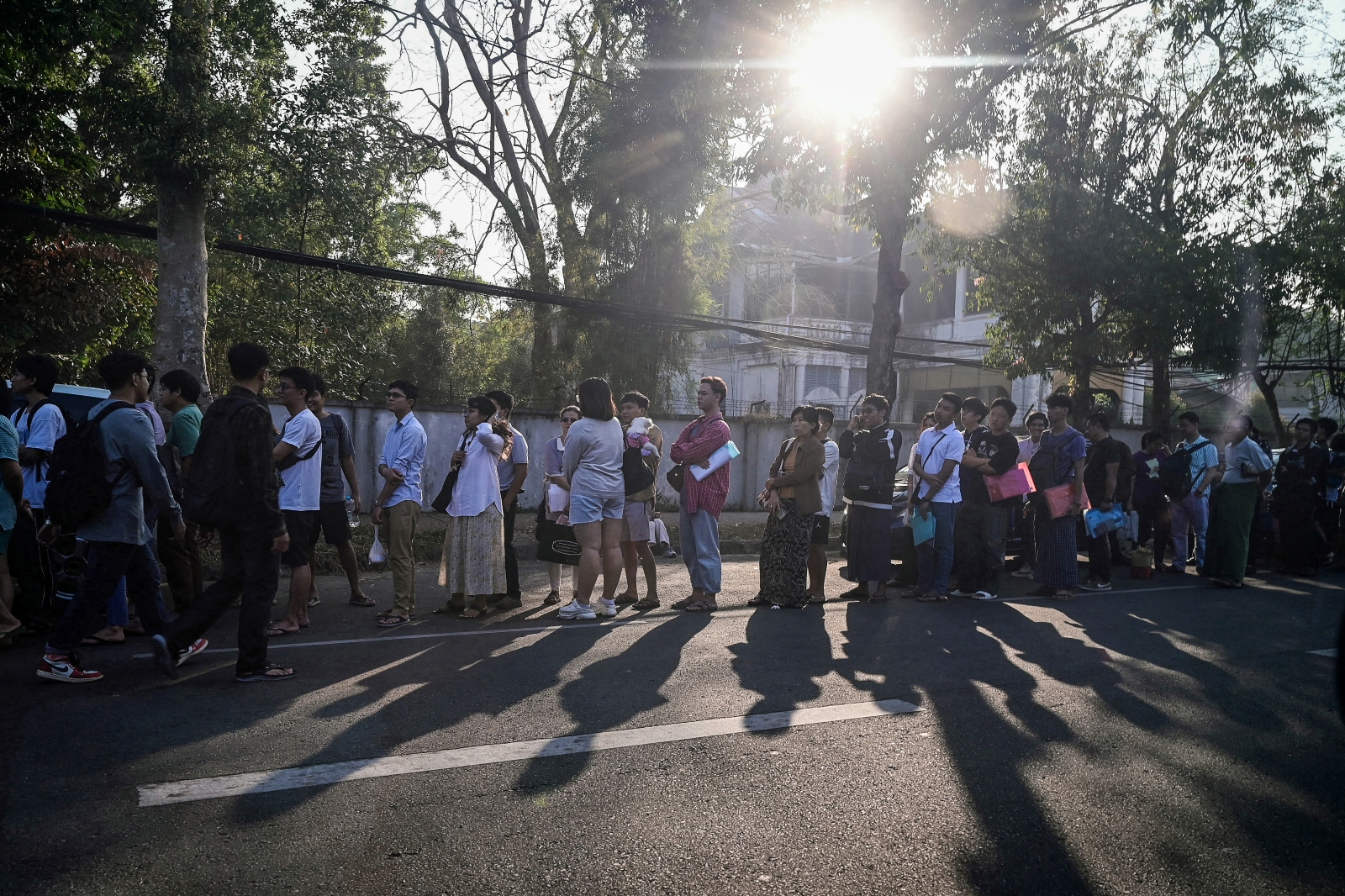YANGON — Human rights watchdog Amnesty International has accused Myanmar authorities of intensifying restrictions on the media ahead of this year’s general election.
The authorities were using new and old methods to intimidate the media and restrict freedom of expression, Amnesty said in a report. Threats, harassment and imprisonment were being used to stifle independent journalists and media outlets, Amnesty said in the report, Caught between state censorship and self-censorship: Prosecution and intimidation of media workers in Myanmar, released on June 16.
Amnesty said the clampdown had intensified during the past year, when at least 10 media workers had received jail sentences. It said the clampdown was taking place despite the “much-touted” reform process launched after the change of government in 2011.
“What we are seeing in Myanmar today is repression dressed up as progress,” said Amnesty’s research director for Southeast Asia and the Pacific, Rupert Abbott.
Amnesty said it had been told in interviews with media workers that constant surveillance and the threat of imprisonment had led to widespread self-censorship.
Journalists were well aware of what “red lines” they cannot cross – mainly stories relating to the military, extremist Buddhist nationalism and the plight of the Rohingya – and were often reluctant to cover these issues, the report said.
“We walk a fine line on the cusp, finding out that we’ve hit a nerve when they arrest someone or ban the media from covering an issue in a balanced and fair way”, said one journalist, who asked not to be named.
The report also referred to the use of lengthy and costly legal processes aimed at shutting down media outlets and cases where several people from the same outlet had been charged over the same story.
Mr Abbott said that with a general election later this year, a free press is more important than ever to inform the public about the choices they face.
“The government must immediately release all journalists jailed for simply carrying out their work peacefully, publicly commit to respect freedom of expression, and repeal all laws used to silence peaceful dissenting voices and critics,” he said.







